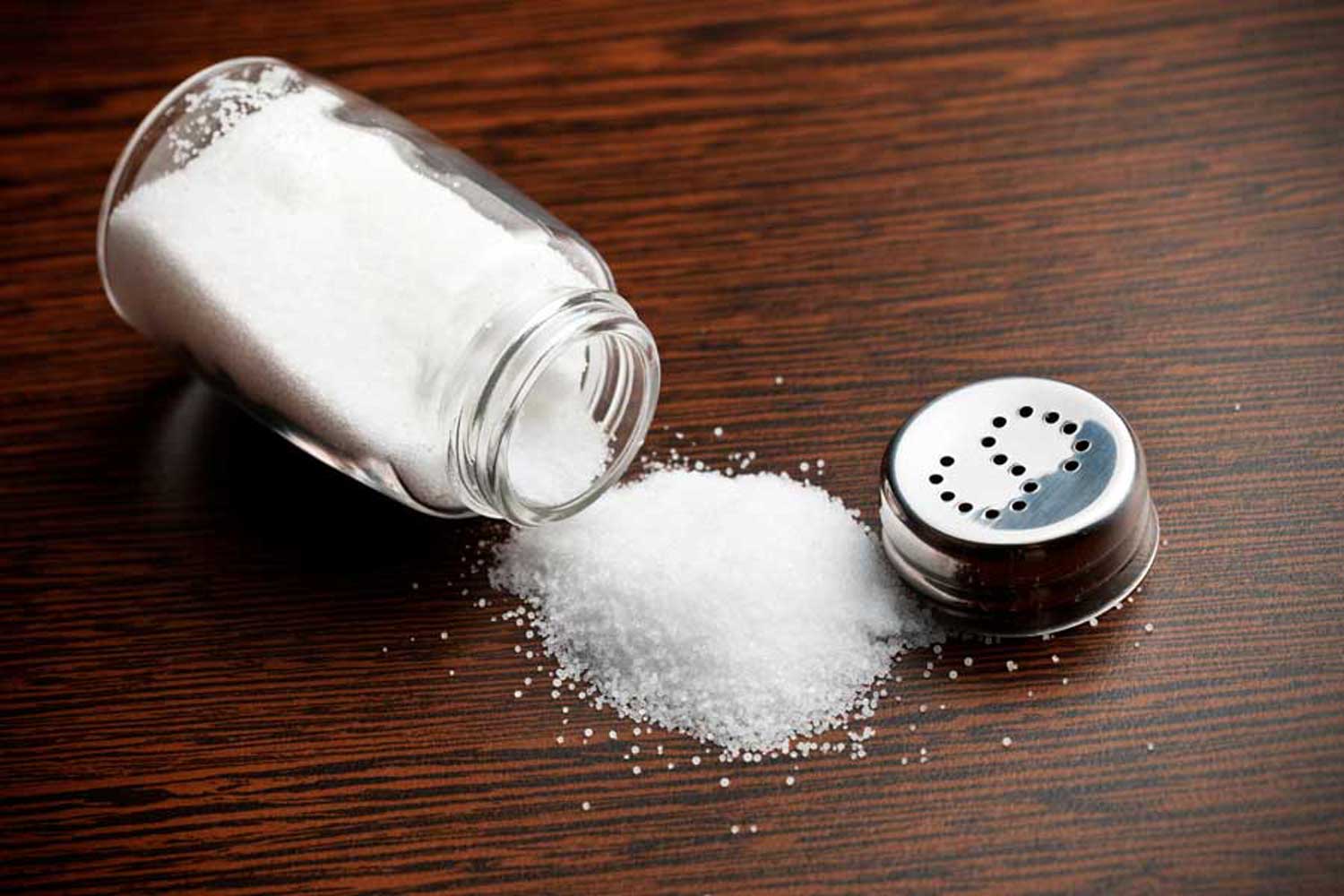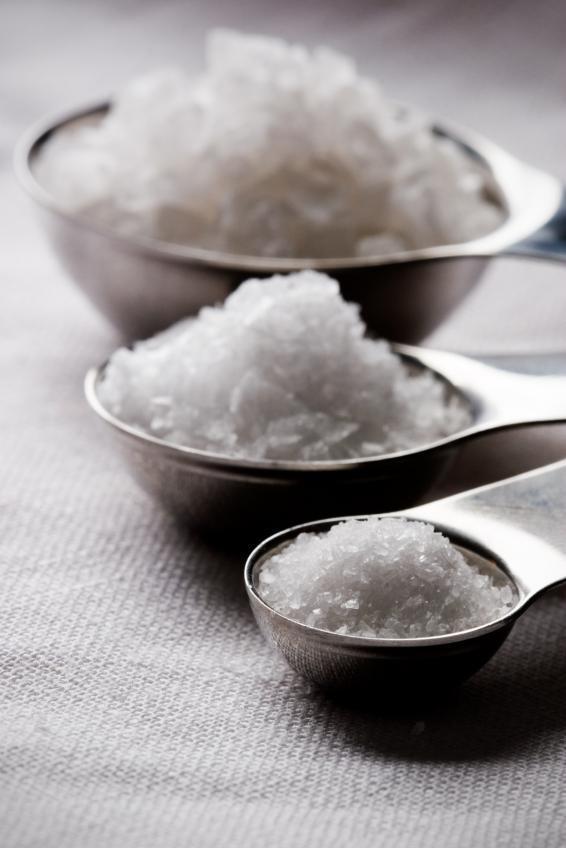Salt offers a variety of health benefits, which are explained below.
Common salt, also known as sodium chloride, an ingredient used for seasoning in everyday foods. It is available in a range of diverse forms, depending on the proposed use. Along with its culinary usage, it is also used as a food preservative.
The salt/water ratio is critical for the metabolic rate of our body. Sodium facilitates sending signals to our nerves and muscles and helps sustain the fluid content inside and outside the blood cells. The salt concentration in a solution used to cleanse wounds is the same as is present in human blood i.e. 0.9% sodium chloride. Dietary salt exists in various forms: unrefined, refined (also known as table salt) and iodine-fortified salt.
• Oral Rehydration
Salt is essential for sustaining the hydration levels of the body. It is extremely vital to maintain the electrolyte balance for the smooth functioning of the organs. These electrolytes primarily entail magnesium, potassium, calcium, and sodium.
For people who work outside and especially those who regularly workout, it is crucial to recover both salt and water shortages that occur through perspiration. When the body is dehydrated and diseases like cholera and diarrhea weaken the system, doctors advise using a blend of water, sugar, and salt to compensate for the lost fluids. This solution is as effective as Oral Rehydration Solution (ORS).
• Improves Cardiovascular Health
It has been proven that dietary salt determines the blood pressure of the body and has an impact on cardiovascular health, which is primarily related to strokes and heart attacks. High blood pressure or hypertension is a major cause of such events. Inadequate intake of calcium, magnesium, and sodium can cause health issues. Controlling the intensity of your salt intake often affects the blood pressure. Low blood pressure (a reading below 90/60) can be treated by consuming more salt and hydrating fluids. This will help boost the volume of blood in the arteries, resulting in a rise in blood pressure.
• Prevents Diabetes
Healthy levels of insulin are required to maintain a fit body. Diets with low levels of salt can weaken the body’s sensitivity towards insulin. This reduces the body’s ability to metabolize glucose, providing poor levels of energy to the liver, muscles, and nervous system, possibly leading to type 2 diabetes.
• Prevents Hyponatremia
Hyponatremia is a condition in which the body suffers from a shortage of sodium (salt) in the fluids present outside the cells. This can be caused by over-hydration with water, perspiration, or diarrhea, and is also known as water intoxication. To maintain a healthy blood pressure and smooth functioning of your nerves and muscles, the body needs an adequate amount of sodium. When this optimum level of sodium falls, water enters the cells to compensate. This results in an imbalance of water to the salt ratio in the body, causing swelling in the cells because of excess water.
• Combats Sun Stroke
Heat stroke is a condition that occurs when the body’s heat-regulating system falls short. This can occur both by being out in the hot sun for a long duration as well as overheating in the surrounding environment, such as work areas. The body fails to release heat properly in order to attain its normal temperature. As a result, the body temperature becomes too high, which poses a threat to the major organs. To cool itself down, the body produces more sweat through the sweat glands, thereby losing essential salt (sodium) and water.
A person suffering from heat stroke can be treated by offering water or fluids that contain sugar and salt.
• Allegedly Cures Cystic Fibrosis
Cystic fibrosis is caused by a malformed protein that prevents the optimum movement of salt and water in and out of the body’s cells, resulting in very sticky, salty sweat. In cystic fibrosis, the body loses more salt than normal. Infants suffering from cystic fibrosis need extra salt as both infant milk and breast milk is low in sodium. The salt content should be cautiously increased only after a discussion with a specialist.
• Maintains Dental Hygiene
Painful bacterial infections like trench mouth can cause ulcers in the gums, which can be soothed using a salt water rinse. The rinse can be prepared by mixing 1/2 teaspoon of salt mixed with 1 cup of warm water. It helps reduce swelling and soothes sore gums. As a preventive oral hygiene measure, cleaning the teeth with a mixture of 1/4 teaspoon each of salt and baking soda in 1 qt. of warm water helps clean plaque, whiten the teeth, and keep the gums healthy.
• Treats Sore Throat
Pharyngitis, commonly known as a sore throat, can be alleviated by repeated gargling with a cup of warm water mixed with ½ teaspoon of salt.
• Relieves Muscle Cramps
Muscle cramps can occur due to various reasons such as alcoholism, exercise, or medications. The intake of fluids and drinks that contain salt can be helpful in providing relief.
• How much of Salt Intake is Healthy?
Doctors recommend no more than 6 grams of dietary salt (i.e. 2.5 grams of sodium) daily. This makes it approximately 1 teaspoon of salt per day. A good amount of that (about 75%) is already present in processed meats, breakfast cereals, and bread.
Some food labels only display the sodium content present in the food item. However, you can calculate the salt content by using an easy formula to find out how much actual salt you are eating in the disguise of sodium. Salt content in the food item = 2.5 * (sodium content)
If the amount of salt per 100-gram serving is more than 1.5 grams i.e. 0.6-gram sodium, then it is considered to have a high salt content.
If the amount of salt per 100 gram serving is less than 0.3 grams i.e. 0.1 gram sodium, then it is considered to have a low salt content.
I hope this helps you appreciate salt that much more! The information above is credited to various blogs and internet research that I have paraphrased for your convenience.
– Charles F.
(Salt Enthusiast)







